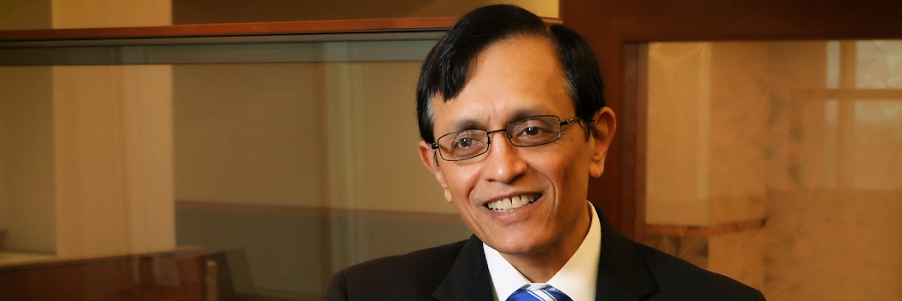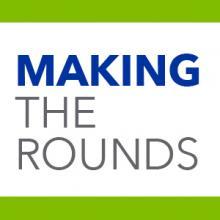Cardiovascular & thoracic surgeon Dr. Keshavamurthy gets to the heart of patient care


Suresh Keshavamurthy, MD, is a cardiothoracic surgeon with over twenty years of experience. Cardiothoracic surgery deals with the heart and chest and can include such procedures as heart and lung failure surgery, heart and lung transplantations and coronary bypass grafting. For this special Heart Month edition of Making the Rounds, we met with Dr. Keshavamurthy to discuss the special care involved in transplant and the part of his job that touches his own heart.
What is unique about working in transplant?
[I]t's a lot more one-on-one involvement. You get very, very deeply involved with the patient. And as opposed to just treating the heart or the lung or any organ that we treat, it becomes more like holistic care.
Even though you sometimes take good care of them and treat them, they're not doing well – then you've got to figure out why. And you've got to fix it. It could be something totally remote from the healthcare standpoint. Could be something at home. Could be a social issue. Could be something, but unless you fix it, they're not going to be doing well.
Tell us about your past experience and how it shapes your work now.
I've seen a lot of good surgeons do [coronary bypass grafting] at the Cleveland Clinic, where I did my fellowship and trained there for a while. That is generally considered the mecca for coronary bypass grafting. And having been there and rubbed shoulders with the giants, as they call it, I've had the opportunity to look at how they do it from close range and imbibe a few of their trade secrets.
During my last stint at Temple University Hospital in Philadelphia, I learned the art and science of lung transplantation from Dr. Toyoda, who is the chief there.
Having been in these two places has given me this unique opportunity to bring them to Lexington. And hopefully I'll be able to help.
What is the most rewarding part of your job?
The best reward I personally feel is that you complete an operation, you're done, and then you go and talk to the family. And to see them – the gratitude on their faces, just that hug that they give you once you're done, I think that's the reward.
Watch our full interview with Dr. Suresh Keshavamurthy.




